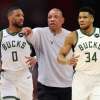Unlike passionate bettors who rely on intuition or “gut feeling,” quants treat wagering as a serious scientific project. Their desks are cluttered not with lucky charms but with probability-distribution charts, spreadsheets, and scripts. It is mathematics—rather than emotions—that helps them spot microscopic market “errors” in bookmakers’ lines and monetize those discrepancies.
The Mathematician Behind the Betting Line: What Is a Quant?
A quant (from the English quantitative analyst) is a specialist who builds statistical models instead of manually “breaking down” matchups. They load huge troves of historical data—score, pace, key players’ form, even the humidity on game day—into their models. The algorithm outputs the probability of an outcome, and the quant compares it with the bookmaker’s odds, placing a bet whenever the expected value is positive.
Napkin Formulas: The Solo Quant’s Craft
So-called “desk” quants work almost by hand. They choose metrics themselves, clean noise from the dataset, run calculations on a laptop, and after each series compare forecast deviations with the actual result. Even a one-percentage-point error signals the need not to slow down the analysis but to adjust the model.
Self-Betting Code: The Industrial Approach
When volume comes into play, another type of quant—an automated-system developer—takes the stage. Their program scans the lines of dozens of bookmakers in real time, updates databases in parallel, and instantly places wagers when an overlay is detected. Speed is critical: extra seconds can wipe out the edge because the market quickly “closes” distortions.
Legend of the Numbers: The Bob Voulgaris Case
The most famous example is Charalambos “Bob” Voulgaris. His NBA models accounted for possessions, lineup efficiency, and referee tendencies. Thanks to the precision of his forecasts, Voulgaris wagered large sums and later consulted for a professional basketball club. His story proved that a quant approach can yield multimillion-dollar profits for those who can mathematize the game better than the bookmakers.
Numbers vs. Emotions: Should You Become a Quant Bettor?
A quant’s work resembles constant instrument calibration: the market changes, and an algorithm ages like milk on a hot day. You will need a solid grounding in statistics, coding skills, and the emotional discipline to stick to the strategy even after a losing streak. If probability theory sounds more convincing than football superstitions, a quant strategy could turn your love of sport into a systematic source of income.






